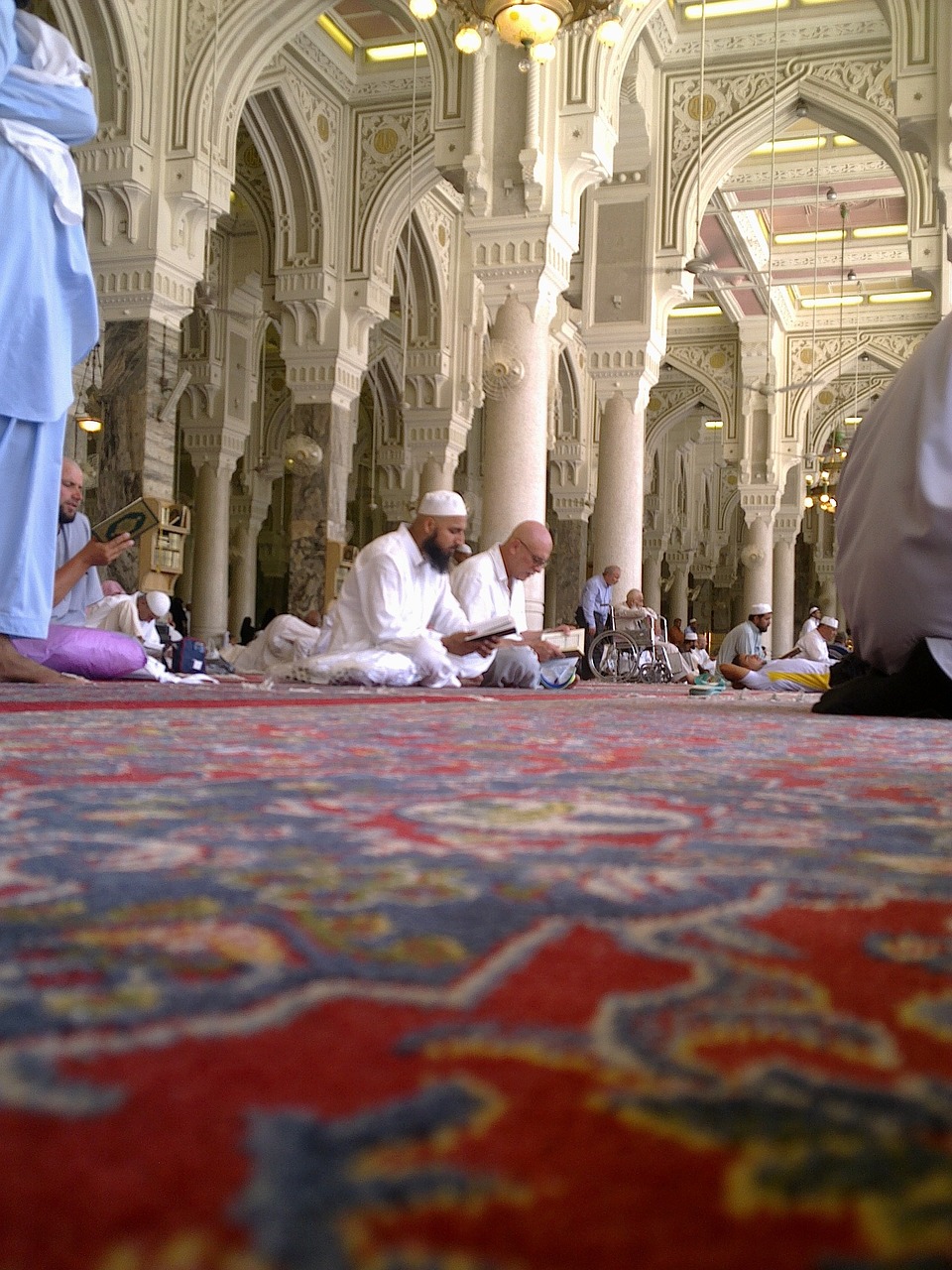Saudi Arabia Video
Cultural Sensitivities: Understanding Local Norms in Saudi Arabia
Saudi Arabia, officially known as the Kingdom of Saudi Arabia, is a country located in the Middle East. With its rich history and strong Islamic traditions, it is important for visitors and expatriates to understand and respect the cultural sensitivities and local norms in order to have a positive and respectful experience in the country. This article aims to provide a comprehensive guide to understanding the cultural sensitivities in Saudi Arabia.
Religion and Islam in Saudi Arabia
Saudi Arabia is the birthplace of Islam and home to the two holiest cities in Islam, Mecca and Medina. The country follows a strict interpretation of Sunni Islam, known as Wahhabism. Religion plays a central role in the daily lives of Saudis, and it is important to respect and adhere to Islamic practices. Some key points to be aware of include:
- Prayer: Muslims are required to pray five times a day, and it is important to be respectful and avoid interrupting or disturbing someone during their prayers.
- Friday Prayer: Friday is considered a holy day in Islam, and Muslims gather for congregational prayers at the mosque. Non-Muslims should avoid entering the mosque during prayer times.
- Dress Code: Modest dress is expected in public, especially for women. Women should cover their hair with a headscarf (hijab) and wear loose-fitting clothing that covers their arms and legs. Men should avoid wearing shorts in public.
- Ramadan: Ramadan is the holy month of fasting for Muslims. Non-Muslims should be respectful and avoid eating, drinking, or smoking in public during daylight hours.
Saudi Arabian Cuisine and Dining Etiquette
Saudi Arabian cuisine is rich in flavors and influenced by Bedouin, Persian, and Indian traditions. When dining in Saudi Arabia, it is important to be aware of the local dining etiquette and customs. Here are some key points to keep in mind:
- Halal Food: Saudi Arabia follows strict halal guidelines, and pork and alcohol are strictly forbidden. Make sure to eat only at halal-certified restaurants and avoid consuming or carrying any prohibited items.
- Handwashing: Before and after meals, it is customary to wash your hands. Look for a handwashing station or ask for a pitcher of water to perform ablution.
- Eating with Right Hand: In Saudi culture, it is common to eat with the right hand. Using the left hand is considered disrespectful.
- Sharing Food: Saudis often share food from a communal plate. It is polite to wait for the host or eldest person to initiate the meal and to only take a small portion to leave enough for others.
Gender Segregation and Interactions
Saudi Arabia follows a strict gender segregation policy, and it is important to understand and respect these norms when interacting with locals. Here are some important points to consider:
- Public Spaces: In public areas, there are often separate sections designated for men and families. Single men should avoid entering family sections.
- Mutaween (Religious Police): The Mutaween enforces Islamic laws and social codes. It is important to be aware of their presence and follow their instructions.
- Physical Contact: Physical contact between unrelated men and women is generally not allowed in public. It is important to maintain a respectful distance.
- Gender Roles: Traditional gender roles are still prevalent in Saudi society. It is important to be respectful and mindful of cultural expectations.
Respecting Cultural Customs and Traditions
Saudi Arabia has a rich cultural heritage, and it is important to respect and appreciate the local customs and traditions. Here are some customs and traditions to be aware of:
- Arabic Greetings: Greetings are an important part of Saudi culture. Men typically greet each other with a handshake and a kiss on both cheeks, while women greet each other with a hug and kisses on both cheeks. When greeting someone of the opposite gender, it is best to wait for them to initiate the greeting.
- Guest Hospitality: Saudis are known for their warm hospitality. If invited to someone’s home, it is customary to bring a small gift as a token of appreciation.
- Respecting Elders: In Saudi culture, elders are highly respected. It is important to show deference and avoid contradicting or challenging their opinions.
- Photography Restrictions: Photography of government buildings, military installations, and certain religious sites is generally prohibited. Always ask for permission before taking photos of people.
Image 1: Saudi Arabia

Interacting in Public Spaces
When interacting in public spaces in Saudi Arabia, it is important to be mindful of the local norms and customs. Here are some key points to consider:
- Public Displays of Affection: Public displays of affection, such as hugging or kissing, between unrelated couples are considered inappropriate and should be avoided.
- Respecting Personal Space: Saudis value personal space and may stand or sit at a distance during conversations. It is important to respect their personal boundaries.
- Public Behavior: It is important to maintain a respectful and modest demeanor in public. Loud or boisterous behavior may be seen as disrespectful.
- Business Etiquette: When conducting business in Saudi Arabia, it is important to be punctual and dress formally. Handshakes are common, but wait for the other person to initiate physical contact.
Image 2: Saudi Arabia

Respecting Saudi Laws and Regulations
Saudi Arabia has strict laws and regulations, and it is important to respect and abide by them as a visitor or expatriate. Here are some important points to be aware of:
- Alcohol and Drugs: The consumption and possession of alcohol and drugs are strictly prohibited in Saudi Arabia.
- Driving: Non-Saudi visitors require an international driving license to drive in Saudi Arabia. It is important to adhere to traffic rules and regulations.
- Public Decency: Public indecency, including immodest clothing or behavior, is considered a serious offense and may result in legal consequences.
- Respecting Ramadan: During Ramadan, it is important to respect the fasting hours and avoid eating, drinking, or smoking in public during daylight hours.
Understanding Social Etiquette
Saudi society places great importance on social etiquette, and it is important to be aware of the following points:
- Language: The official language of Saudi Arabia is Arabic. Learning a few basic Arabic phrases can be greatly appreciated.
- Gift Giving: When giving gifts, it is best to choose something that aligns with Islamic traditions and avoids items that may be seen as inappropriate.
- Accepting Invitations: When invited to someone’s home, it is polite to accept the invitation and arrive on time. Remove your shoes before entering and follow the host’s lead.
- Thanking and Complimenting: Expressing gratitude and offering compliments are valued in Saudi culture. It is important to show appreciation for hospitality and kindness.
Image 3: Saudi Arabia

Conclusion
Understanding and respecting the cultural sensitivities and local norms in Saudi Arabia is essential for visitors and expatriates to have a positive and harmonious experience in the country. By being aware of the religious practices, dining etiquette, gender segregation, customs, and laws, individuals can navigate Saudi society with respect and cultural sensitivity.
References
- https://sauditourism.sa/
- https://www.saudiembassy.net/
- https://www.lonelyplanet.com/saudi-arabia
- https://www.expatarrivals.com/saudi-arabia


